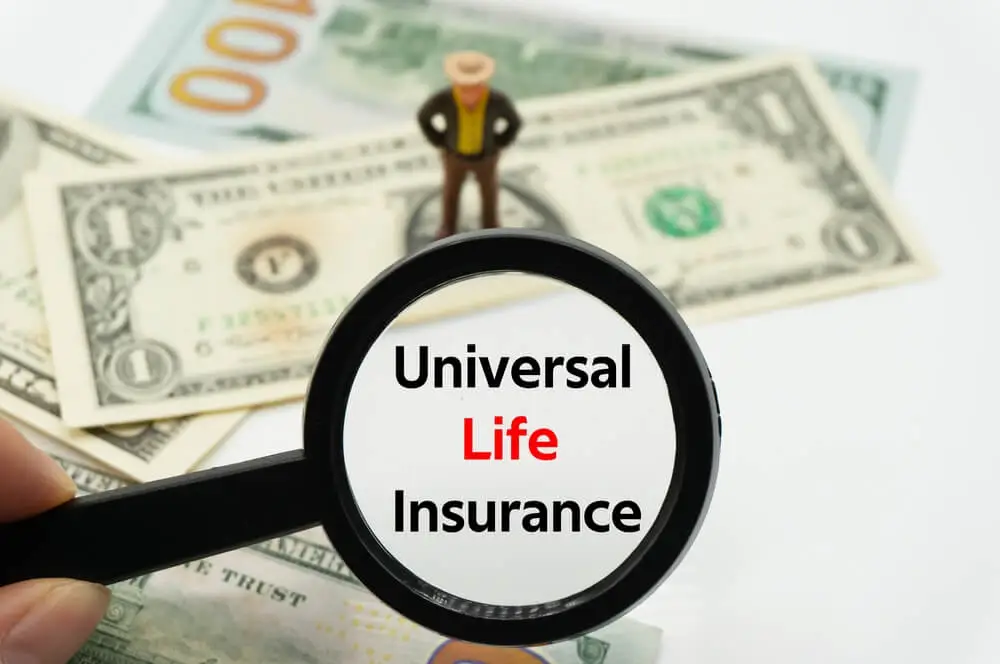Life Insurance Products
What Is Universal Life? (UL)

Universal Life (UL) policies are perhaps the most flexible types of life insurance policies available today. UL is a type of permanent life insurance based on a cash value. That is, the policy is established with the insurance carrier where premium payments above the cost of insurance are credited to the cash value of the policy. The cash value is credited each month with interest, and the policy is debited each month by a cost of insurance (COI) charge, as well as any other policy charges and fees which are drawn from the cash value if no premium payment is made that month. The interest credited to the account is determined by the insurer and carries minimum guarantees.
What Is Indexed Universal Life? (IUL)
Indexed Universal Life (IUL) is similar to universal life insurance, however it does have several features not found in traditional UL policies. IUL comes in many different flavors, from a basic fixed-rate policy to variable products that allow the policy holder to select various equity accounts in which they can invest. An indexed universal life insurance policy gives the policy holder the opportunity to allocate cash value amounts to either a fixed account or an equity indexed account. Indexed policies offer a variety of popular indices to choose from, such as the S&P 500 and the Nasdaq 100.
Whole Life Insurance
Whole life insurance provides a fixed amount of insurance coverage over the life of the insured, with the benefits payable only upon the insured’s death. Whole life policies are designed to build tax deferred cash value, which is the accumulation of premiums collected less applicable expenses and applicable insurance charges and they allow for borrowing against the cash value of the policy. As mandated by state law, whole life policies contain nonforfeiture values payable in cash or some other form of insurance in the event the policy lapses from nonpayment of required premiums or the policy owner decides to surrender the coverage. There are several types of whole life insurance policies.
[icon name=”circle-right” prefix=”fas”] A nonparticipating whole life insurance policy does not pay dividends to the policy owner, but rather the insurer sets the level premium, death benefits and cash surrender values at the time of purchase. These amounts are fixed at policy issue.
[icon name=”circle-right” prefix=”fas”] Indeterminate premium whole life insurance is a nonparticipating policy featuring adjustable premiums which are set annually and reflect the insurer’s mortality experience, investment earnings and expenses, although they may not exceed a guaranteed maximum rate. Premiums generally start out lower than other whole life insurance types.
[icon name=”circle-right” prefix=”fas”] Ordinary level premium whole life insurance features premium payments that remain consistent until the death of the insured or attainment of a terminal age when the cash value equals the face amount of the policy.
[icon name=”circle-right” prefix=”fas”] A participating policy allows the insured to share in the insurers investment, expense and mortality experience by providing dividends used to reduce premium payments or to purchase paid-up additional insurance. The dividend options make these policies both more flexible and more expensive than nonparticipating policies.
[icon name=”circle-right” prefix=”fas”] Single premium whole life insurance is a limited payment whole life policy allowing insureds to purchase guaranteed lifetime protection for a single upfront lump sum payment and thus have an immediate cash value.
[icon name=”circle-right” prefix=”fas”] Limited payment whole life insurance can be either participating or nonparticipating. Premiums are paid over a shorter period, but still retain lifetime protection. These policies have higher premium amounts and accrue cash value faster than ordinary life policies, since they are paid over a shorter period.
Term Life Insurance
Term life insurance is a simple, low-cost policy, and its main purpose is to replace your income when you die. Term life insurance is typically sold in lengths of one, five, 10, 15, 20, 25 or 30 years. Coverage amounts vary depending on the policy but can go into the millions. Most people buy term life insurance for a length long enough to cover their prime working years. That way, if they die early, they can help a surviving spouse or other beneficiary meet short-term financial needs like paying off a mortgage or supporting their kids through college. It’s often the cheapest life insurance, and it’s sufficient for most people. However, If you outlive your policy, your beneficiaries won’t receive a payout.
What Is Mortgage Protection?
When a homeowner passes away, has a heart attack, stroke, or ends up with cancer and they can no longer go back to work they want to be sure that in addition to any life insurance coverage they may have (designed to replace their lost income for the benefit of the surviving spouse and children) that the single largest expense most families will ever have, that being their mortgage, can be paid off to guarantee that their loved ones will always have a roof over their heads. This is where Mortgage Protection comes in. Mortgage protection usually comes with living benefits which means you do not have to die in order to collect the insurance benefit.
What Is Final Expense Insurance?
Final expense insurance is a life insurance policy used to pay for the costs of funeral services and a burial when the named insured dies. Such a policy helps ease the financial burden that can devastate a family when a loved one dies. With the average cost of funeral and burial costs now at nearly $8,000+ the need for this type of protection is very real, and very important. Ask about our final expense coverage and don’t leave a burden on your loved one when you pass away.

Annuities
An annuity is a type of savings plan that can be used to accumulate assets on a tax-deferred basis for retirement and/or to convert retirement assets into a stream of income. While an annuity is an insurance contract and benefits from all the guarantees and security that an insurance policy provides, an annuity is, in reality, the opposite of traditional life insurance: Life insurance provides financial protection against the risk of dying too soon An annuity provides financial protection against the risk of living too long and running out of income during retirement years There are two basic types of annuities: Deferred Annuities. A deferred annuity has two distinct phases: the accumulation phase and the income phase. During the accumulation phase, a client will contribute premiums to the annuity, where their savings accumulates on a tax deferred basis until needed for income purposes. Immediate Income Annuities. An immediate income annuity is purchased with a single premium and income payments begin immediately or shortly after the premium is paid.
Benefits of A Fixed Indexed Annuity
In the past, the choices were either (1) receive the guarantee of principle and a minimum amount of interest, or (2) link to the market with the potential of higher returns, but also accept the downside risk to the principal. A Fixed Indexed Annuity provides the best of both worlds. Guarantee of principal and the potential of market-linked growth with no risk of loss of principal due to market downturns.

Infinite Banking
The infinite banking concept (IBC) is a system whereby one becomes their own banker by growing their liquid cash value inside a properly-designed whole life insurance policy while borrowing against it to fund major expenditures, emergencies, and outside investment opportunities. Utilizing the infinite banking concept rather than traditional banks provides competitive safe growth rates, tax-sheltering, various protection benefits, and most importantly the continuous compounding of their liquid assets even while they’re being borrowed.

Long-Term Care Insurance
Long-Term Care Insurance is important to help you in the future protect your income and assets from any unexpected or expected health events. LTC insurance will pay for nursing home, in home health care for extended periods of time. The policy can be customized to your wants. Long-Term Care insurance keeps you from having to count on your family members to take care of you when you are sick. It also provides the money needed to take care of the expenses of Nursing homes and in home health care.

Disability Insurance
Protect your income in the case of you becoming disabled for either a short or a long-term disability. Disability will cover a percentage of your income depending on your occupation. There are many options to customize disability policies to fit your needs. You have to qualify to get this insurance.
Life Solutions You’ll Love.
Take Care of What Matters Most!
At ASE Consulting Solutions LLC we have the solution for you!
